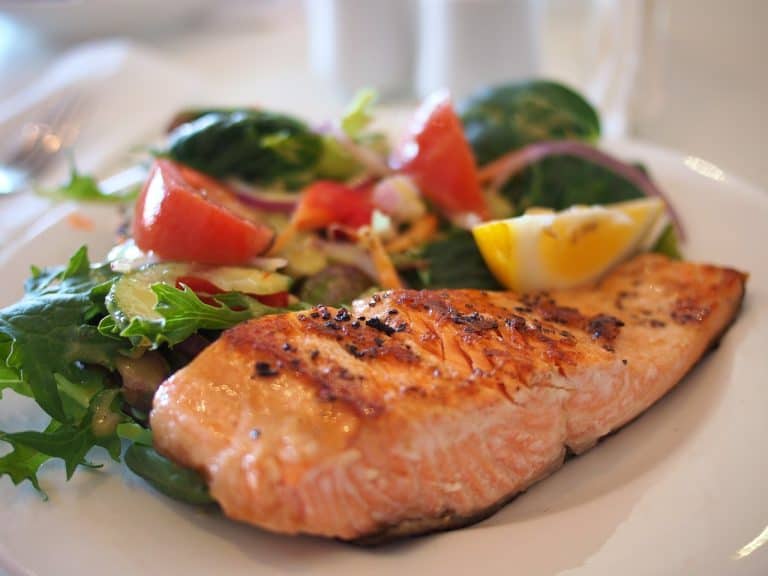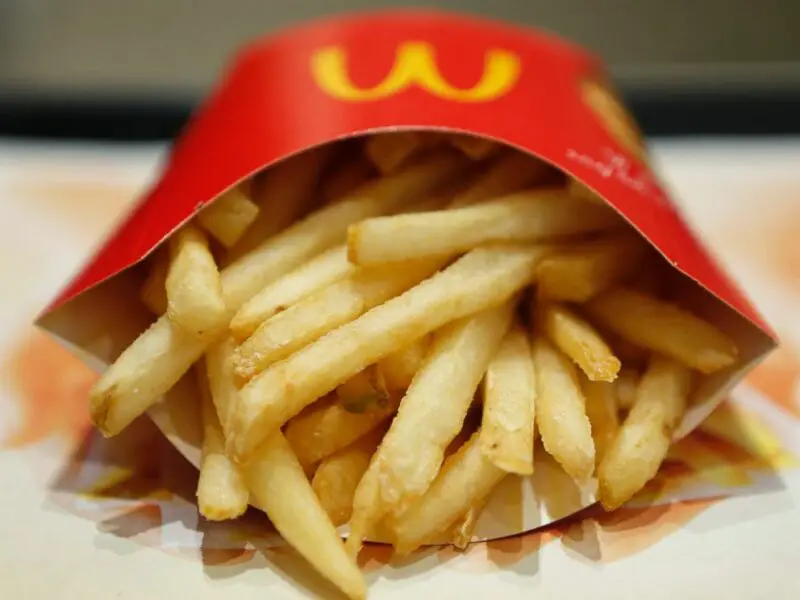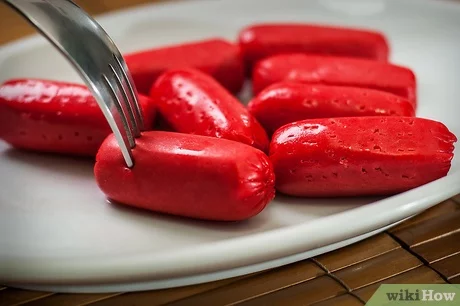How Long Can You Leave Cooked Salmon at Room Temperature?
Cooked salmon is a popular dish enjoyed by many people around the world. It is a great source of protein and omega-3 fatty acids, making it a healthy addition to any diet. However, like all types of food, cooked salmon has a limited shelf life, and it is important to ensure that it is handled and stored properly to prevent spoilage and the potential risk of foodborne illness.
Introduction
Food safety is an essential aspect of handling fish. Cooked salmon is particularly vulnerable to spoilage because it is a type of seafood. Seafood is more susceptible to spoilage because of its high sensitivity to temperature changes, moisture, and exposure to air.
If cooked salmon is left at room temperature for too long, it can become a breeding ground for harmful bacteria that cause foodborne illnesses such as salmonella or listeria.
Factors That Affect the Shelf Life of Cooked Salmon
The shelf life of cooked salmon can be affected by several factors. One of the most critical factors that determine how long cooked salmon lasts at room temperature is the air temperature. The higher the air temperature, the quicker the period for which cooked salmon can stay unspoiled.
Humidity levels also play a crucial role in determining how long cooked salmon can last at room temperature. When there’s high humidity in the environment where cooked salmon is stored, there’s an increased likelihood that bacteria will grow on your salmon increasing the chances of spoilage.
The Science Behind Fish Spoilage
Fish spoils faster than other types of meat because it contains more bacteria in its natural state and has fewer defenses against bacterial growth when exposed to air or moisture. As soon as fish has been removed from the water, the bacteria start to break down its proteins and make some dangerous toxins.
The different stages of fish spoilage are
- Stage 1:The odorless state; this is the stage where the fish is fresh and fit for consumption by humans.
- Stage 2:The multiplication Stage; this is the stage where anaerobic bacterial growth has begun to take place in the fish. This stage attracts a bad smell.
- Stage 3:The chemical stage; this is the stage where the fish reaches its final phase, starts to have a bad taste and might also contain toxins that could be harmful to human health.
How Long Can You Safely Leave Cooked Salmon at Room Temperature?
As a general rule of thumb, cooked salmon should not be left at room temperature for more than two hours. If it is exposed to temperatures above normal, keeping it out for longer than two hours would increase the risk of spoilage and prevent your salmon from tasting fresh or safe for consumption.
This two-hour time frame may vary based on various circumstances such as room temperature, humidity levels, and air temperature. Thus, it is essential to ensure that all factors are taken into account when storing cooked salmon at room temperature.
To keep cooked salmon fresh for an extended period, consider storing it in ice, which will help keep it cool until it’s ready to be consumed.
Tips for Ensuring Cooked Salmon Stays Fresh for Longer Periods of Time When Stored at Room Temperature
- Immediately store cooked salmon properly after preparation or purchase
- Cool leftovers right away and store in air-tight containers
- Keep cooked salmon covered in foil, plastic wrap, or store it in airtight containers to prevent exposure to air.
- Don’t leave cooked salmon on the counter for more than two hours, throw away anything that has been left out for too long.
- Store cooked salmon in the fridge or freezer as soon as possible if it needs to be kept for more extended periods
Recognizing Signs That Cooked Salmon May Have Spoiled
To prevent foodborne illness caused by consuming spoiled cooked salmon, it is essential to recognize the signs of spoilage early enough and avoid them. Below are some of the tell-tale signs that indicate that your cooked salmon might have gone bad:
- Bad Odor: if your salmon emits a sour or pungent smell, then you should avoid consuming it. It indicates bacterial overgrowth or protein breakdown in the fish.
- Fishy Taste: Consuming unpalatable fish indicates that the fish is unsuitable for consumption; this could result from long storage times or inadequate cooking.
- Mold Growth:If there are visible mold spores on your cooked fish, then it’s time to throw it away and avoid consuming any part of the dish. Eating moldy foods can cause nausea, vomiting, stomach upset and headaches.
- Change In Color:The normal pull of cooked salmon is pinkish-orange. However, if you notice a discoloration of your fish, it might indicate spoilage..
If any of these tell-tale signs are present in your cooked salmon dish, then it’s best to throw it away or return it to the store where you purchased it.
Proper Storage Techniques for Cooked Salmon
The best storage technique for cooked salmon is to refrigerate it. However, improper storage techniques can cause your cooked salmon to spoil quickly, which could put you at risk of foodborne illness.
- Place your cooked salmon in an airtight container. This will help lock in moisture and prevent the fish from drying out.
- Wrap the container in plastic wrap or aluminum foil to provide an extra layer of insulation and keep air and moisture out.
- Store containers of salmon on the bottom shelf of your fridge, as this is the coldest part of your appliance
- If you need to store cooked salmon for more extended periods, consider freezing it. Salmon can last up to three months when stored in a freezer.
The Health Risks Associated With Consuming Spoiled Salmon
The health risks associated with consuming spoiled salmon are significant. The most common foodborne illnesses associated with spoiled fish include:
- Scombrotoxic Fish Poisoning:This illness occurs when fish (such as tuna or mackerel) is not chilled properly after harvesting and therefore contains high levels of histamine. Symptoms include headaches, flushing, sweating, abdominal cramps and diarrhoea.
- Ciguatera Fish Poisoning:This condition occurs when tropical predatory reef fish containing toxins are consumed by humans. Symptoms include gastrointestinal complaints, neural symptoms like tingling fingers or toes, hot or cold sensations on the skin and muscle weakness..
- Parasitic Infections:Consuming undercooked fish can lead to parasitic infections such as anisakiasis whose symptoms include abdominal pain, vomiting, nausea and occasionally diarrhoea.
Consuming spoiled salmon can be life-threatening for people compromised immune systems or those with chronic diseases. It’s important to follow food safety guidelines when cooking and storing leftover fish to prevent these illnesses.
What To Do if You Suspect That Your Cooked Salmon Has Spoiled
If you suspect that you have consumed or are exposed to spoiled cooked salmon or any other type of food, seek medical attention immediately. The symptoms of foodborne illness can take several hours to present itself indicating the onset of food poisoning.
In most cases, medical attention is required to treat the symptoms associated with foodborne illness from consuming contaminated fish. Symptoms of food poisoning generally last less than 72 hours after treatment.
Steps that should be taken if there is a reason to suspect that consumed cooked salmon is spoiled:
- Stop consumption immediately:If you notice any signs of spoilage in your salmon, throw it away and ensure no one eats it
- Seek immediate medical attention:Schedule a visit to the doctor if symptoms persist for more than two days.
- Contact Authorities:You can also contact the local health department or government agency handling food safety in your locality if you suspect that your store has sold spoiled fish products.
- Don’t Panic:Panic situation cannot be helpful; however, it’s essential to identify the cause of the problem and take necessary precautionary measures not to experience same again
Preventing Salmon Spoilage
Preventing salmon from spoiling starts from the time of purchase and continues throughout the storage period. The following are some recommendations to prevent salmon spoilage:
- Purchase your salmon from reputable stores or dealers with good quality-control measures in place.
- Store salmon at or below 40°F
- Avoid leaving cooked salmon at room temperature for more than two hours.
- Consume cooked salmon within two days of cooking or purchase, depending on how quickly it was stored after cooking and environmental factors such as humidity levels and air temperature.
- Frozen salmon can last for up to three months in the freezer, so ensure that you are storing them there as appropriate.
Conclusion
To ensure that you and your family can safely enjoy cooked salmon, it is crucial to implement proper handling techniques when preparing, storing, and consuming leftover fish items. You may prevent foodborne illness by keeping an eye for signs of spoilage, but also carefully store leftovers by reheating adequately and following best practices to avoid further incidents in the future.
By following the recommendations outlined in this article, you can maintain the freshness of your salmon dish while also protecting yourself and your loved ones from harmful bacteria and other pathogens that cause foodborne illnesses. Hence, (question how long can you leave cooked salmon at room temperature) has been thoroughly discussed in this article from factors that impact canned goods to cooking methods and prolonging shelf life.
Frequently Asked Questions
How long can you leave cooked salmon at room temperature?
If left at room temperature for more than two hours, cooked salmon becomes a breeding ground for bacteria that can cause foodborne illness. Therefore, it is recommended that cooked salmon be refrigerated within two hours of cooking.
What is the best way to store cooked salmon in the fridge?
The best way to store cooked salmon in the fridge is to put it in an airtight container or wrap it tightly with plastic wrap. This will prevent moisture from getting in and bacteria from growing. Cooked salmon can last up to three days in the fridge when stored properly.
Can you reheat cooked salmon?
Yes, you can reheat cooked salmon. The best way to do this is to bake it in the oven at 350 degrees Fahrenheit until it reaches an internal temperature of 145 degrees Fahrenheit. You can also microwave it on high for one to two minutes, but be sure to check that it has reached a safe internal temperature before eating.
What are some signs that cooked salmon has gone bad?
If cooked salmon has been left out at room temperature for too long, it may develop a sour smell and visible mold or discoloration. These are clear signs that the salmon should not be eaten. Additionally, if the texture or taste seems off, it is best to err on the side of caution and discard the fish.






